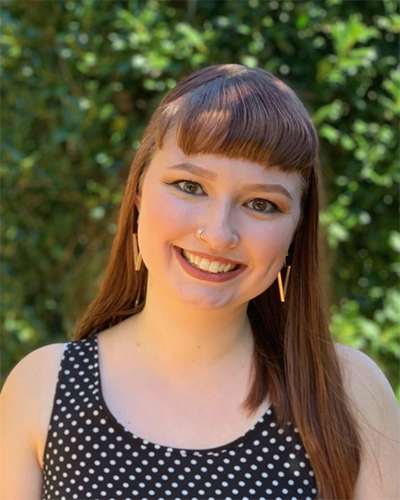HALEY HILL
CAPSTONE
Capstone Project Committee: Randi Culp Stewart, M.S., CGC; Katie DeLong, MS.,. CGC; Stacie Rosenthal, M.S., CGC; Rachel Mills, M.S., CGC
Expanded carrier screening (ECS) identifies individuals’ carrier status for hundreds of genetic conditions. Previous research revealed that over a quarter of individuals carry one or more conditions covered on ECS panels, with about 5% carrying multiple conditions and about 70% carrying conditions other than cystic fibrosis, spinal muscular atrophy, and hemoglobinopathies. Results from ECS have implications that extend beyond individuals who undergo testing in the preconception or prenatal period to their biological relatives. While ECS is becoming a more accessible testing option, it is unclear how individuals who undergo ECS communicate with their relatives about their ECS findings. The purpose of this study was to assess if and how individuals communicate with their relatives following ECS. This study also explored barriers to the intrafamilial communication process and genetic counseling strategies that could facilitate family communication. Individuals who underwent ECS from one genetic testing laboratory were recruited to complete an anonymous self-developed survey. The survey included a validated measure to assess family functioning. Participants (N=21) were mostly female, white, married/partnered, with a high-degree of education and healthy level of family functioning. The majority (76.2%) of participants communicated about ECS with their relatives. Participants were most likely to communicate ECS results to first-degree relatives, particularly their mothers (64.3%), and most often within days of receiving their results. Participants most frequently discussed their relatives’ chances of being a carrier (68.8%) and features of the condition(s) they carried (62.5%). Facilitators to communication included perceived helpfulness for and closeness with relatives. Barriers included perceived irrelevancy for relatives and relatives’ completion of childbearing. Most participants (52.9%) did not receive genetic counseling strategies for the intrafamilial communication process and did not feel any were necessary. Online resources and written information were the most popular communication strategies desired. Genetic counselors should consider strategies to aid in facilitating familial disclosure of genetic risk especially for those who may face barriers in the communication process. Our findings support the development of online resources for ECS carriers and their families. This study provides the first glimpse into the familial communication process of ECS results and how providers can assist in improving this process in the future.
Since Graduation
Haley is from Easthampton, MA and graduated magna cum laude from Northeastern University. During undergrad, Haley was a GCA in the Walsh Lab at Boston Children’s Hospital which studies the genetics of rare brain malformations. Her experiences in the Walsh Laboratory, at Boston Children’s Hospital, and through volunteering as a crisis counselor solidified her desire to become a genetic counselor.
After graduating from UNCG’s Genetic Counseling program in May of 2020, Haley began working as the first prenatal genetic counselor at the Cone Health Center for the newly developed Maternal Fetal Care program in Greensboro. She hopes to contribute to the growth of the MFM program at Cone and is eager to begin expanding the prenatal genetic counseling network in Greensboro.
She also looks forward to representing Cone MFM as a part of Cone Health and UNCG’s joint Precision Health Institute.
